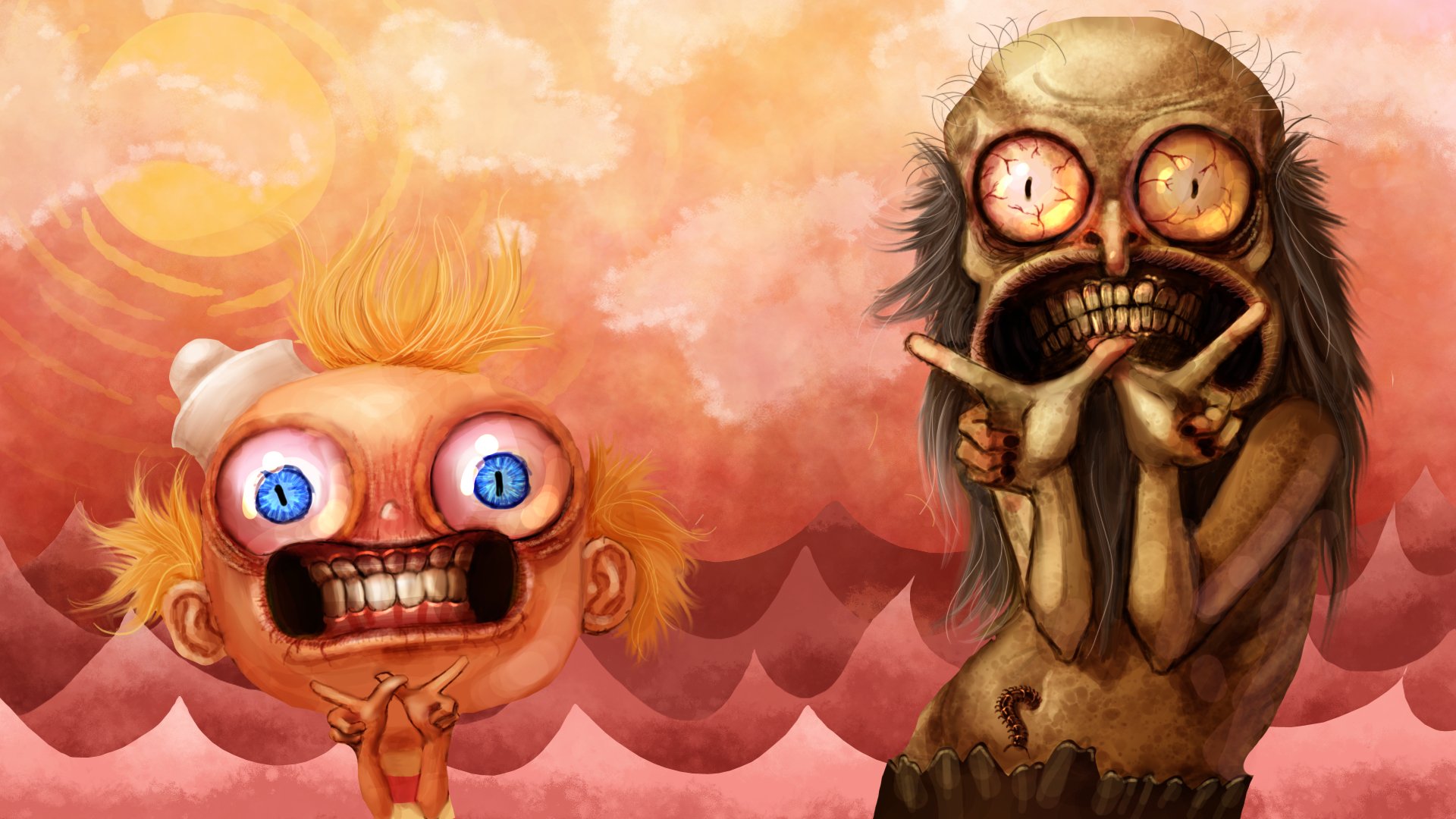Every time we meet someone we give them a gift, we give them a present. We can’t help it! Even if we’re very mean and stingy we still give them a gift – we give them a gift of our meanness, we give them a gift of our stinginess! If we’re happy we give the people we meet the gift of our happiness, and if we’re miserable then this misery is what we pass on. We give them the gift of how we are, no matter what way we are. That’s just the way it works…
The way Ram Dass puts this is to say that the only thing we have to give another human being is our state of being –
The only thing you have to offer another human being, ever, is your own state of being. You can cop out only just so long, saying, “I’ve got all this nice stuff, I know all this and I can do all this.” But everything you do, whether you’re cooking food or doing therapy or being a student or being a lover, you are only doing your own being, you’re only manifesting how evolved a consciousness you are. That’s what you’re doing with another human being. That’s the only dance there is!
No matter what we might think we’re giving (or might imagine we’re able to give because of our professional qualifications, or because of our attainments in the social game we’re playing) the most we can ever give is our own being, the most we can give is how we actually are in ourselves. More than that, we haven’t got to give! Anything other than this is just not a possibility. What’s more – as we have said – we can’t help making the gift of our own state of being to everyone we meet, whether we want to or not! In a way, we could say that this represents a basic level of honesty that we just can’t do anything about. No matter how much we might like to; we’re involuntarily honest – with regard to our inner state, we’re honest despite ourselves…
We are – needless to say – very far from actually seeing or in any way appreciating this truth. The way we think, on a very deep level, is actually based upon the very opposite proposition, which is to say, it is based on the idea that we can ‘be whatever we want to be’. Saying that ‘we can be whatever we want to be’ actually sounds very good to us. It sounds positive, it sounds empowering. It sounds like freedom. The notion that we can not just present ourselves to others in any way we want, but also that we can actually be any way that we want, is a deep cultural assumption for us – it’s ‘deep’ because it’s so hard to question! It’s hard for us to see things the other way – which is the way that says that we can’t change our ‘inner state’ just because we want to, just because it suits us to, just because it might feel like a good thing to do so. Because of our cultural programming, this suggestion (the suggestion that it is impossible to change our own inner state by an act of will) sounds strange to us, unreasonable to us, alien to us. It also tends to sound very fatalistic and disempowering. We very much imagine that this either is or ought to be possible – even if practical experience seems to show otherwise!
The truth of the matter is however exactly opposite to how we tend to perceive it – the truth is that we’ve got it all wrong! We can explain why this should be the case quite easily. It is of course possible for us to change the way we present ourselves (which is, generally-speaking, the way others perceive us), and so superficially speaking it is as if we can ‘change the way we are’. We can change the image, we can change the appearance. This is empowering in one way therefore in the sense that it appears to allow us the freedom to be whatever way we want, but because this ‘superficial freedom’ enables us to mask what is really going on for us it very easily turns into self-deception, which obviously isn’t healthy or ‘empowering’ at all! We can also talk about this in terms of games –one way to define a game is to say that ‘it’s a situation where we do something on an overt or obvious level so as to distract attention from what is occurring on a covert or hidden level’. According to Eric Berne, a game is:
A recurring set of transactions, often reiterative, superficially plausible, with a concealed motivation; or, more colloquially, a series of moves with a snare or “gimmick.”
We can therefore say that in the social game we have the ability to present ourselves in a certain way (a way that suits us) and this allows us to neatly distract everyone’s attention (including our own) from how we really are! This creates not only the situation where everyone interacts with everyone else on the basis of ‘who they’re not’ (i.e. on the basis of ‘who they are in the game’), but also the peculiar situation where we ourselves get to imagine that we genuinely are who everyone else playing the game perceives us to be!
Jung refers to this business of confusing the image with the reality as ‘identification with the persona’ –
A common instance of this is identity with the persona, which is the individual’s system of adaptation to, or the manner he assumes in dealing with, the world. Every calling or profession, for example, has its own characteristic persona. It is easy to study these things nowadays, when the photographs of public personalities so frequently appear in the press. A certain kind of behaviour is forced on them by the world, and professional people endeavour to come up to these expectations. Only, the danger is that they become identical to their personas – the professor with his text-book, the tenor with his voice. Then the damage is done; henceforth he lives exclusively against the background of his own biography. For by that time it is written: “…then he went to such and such a place and said this or that,” etc. The garment of Deianeira has grown fast to his skin, and a desperate decision like that of Heracles is needed if he is to tear this Nessus shirt from his body and step into the consuming fire of the flame of immortality, in order to transform himself into what he really is. One could say, with a little exaggeration, that the persona is that which in reality one is not, but which oneself as well as others think one is. In any case, the temptation to be what one seems to be is great, because the persona is usually rewarded in cash.
It is clear that a huge amount of confusion in our interactions with others is going to be generated by this unwitting identification with the social image or persona. In the game I am this that or the other, and I interact on this basis. My station might be lowly or it might be exalted, I might be a hero or I might be a victim, I might be a Professor of Psychology (or a Consultant Psychiatrist) or I might be a humble road-sweeper, and so on. The point we’re making in this discussion is however that what we’re actually passing on everyone we meet has nothing to do with ‘who we’re supposed to be in the game’, but how we really are in ourselves underneath the socially-approved mask.
The gift we give everyone in our lives has nothing to do with who we think we are, and who others might think we are, and everything to do with our inner state of being. In our society we don’t address this inner state – we deny it, we ignore it, we pretend that it isn’t there. But really – as Ram Dass says – this is all that’s going on, doing our own being is ‘the only dance there is’ – never mind the social fiction.
There is another factor that we need to mention here and that has to do with what actually happens with our inner state when we live our entire lives on the level of the social fiction, on the level of the conceptual-image that we are identified with. Very clearly, denying the truth of what is going on with us and living entirely on the level of ‘what we think is going on’ is going to create an inner state that is characterized by suffering. How can I ignore the truth of who I am, and not create suffering for myself as a result? How can I pretend to be someone I’m not, and expect to be genuinely happy? How can I follow illusions the whole time and not end up being inwardly impoverished?
The inevitable result of adapting to society and playing the social game is that my inner state will be characterized by denied pain, and so this unacknowledged pain will be ‘the gift’ that I will involuntarily pass on to everyone I meet – no matter how great or how marvellous or glamorous or prestigious my role in society might be. The ‘Nessus shirt’ which Jung talks about in the passage above was – in the Greek myth – soaked in a particularly deadly poison (the tainted blood of the overly-amorous centaur Nessus, who Heracles had just slain for molesting his wife), and so if the garment of the persona grows onto us and ‘takes over’ (as Jung talks about it doing) then this ‘possession by the persona’ is only going to end one way and that is badly. Social adaptation is advantageous in the one way because it is, as Jung says, ‘rewarded with cash’, but it is also extraordinarily disadvantageous in another way because the convenient fiction strangles and suffocates the truth, and causes life to become miserable, to become dull and wretched, to become a ‘grey shadow’ of what it would otherwise be, if it were not strangled and suffocated by the possessing persona.
In social adaptation (i.e. though identification with the phoney identity which has been manufactured by the mass mind) we are continually beset and overwhelmed by those mechanical elements which are not us, but which seek to pass themselves off as us. And as we have said, not only do these extraneous mechanical elements ‘pass themselves of as us’, they afflict and oppress us to the point where the ‘inner man’ or ‘inner woman’ becomes all but lost.
This ‘loss of soul’ (if we may call it this) can only have one result – it can only ever cause great suffering for us. Since we are so identified with the persona or mask, we are obliged (by the rules of the game which we are playing but do not know that we are playing) to repress or otherwise deny this suffering, which effectively ‘turns it toxic’, and so this unacknowledged (or unowned) pain, this toxicity, ensures that the only gift we will ever be passing on will be a poisoned one.





